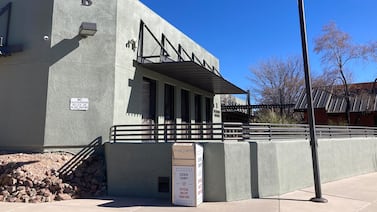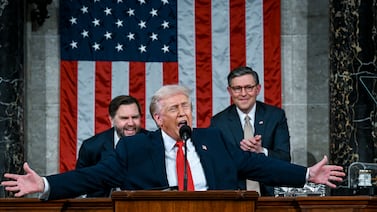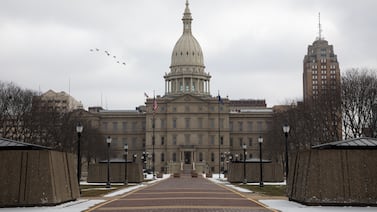Votebeat is a nonprofit news organization reporting on voting access and election administration across the U.S. A version of this post was originally distributed in Votebeat’s free weekly newsletter. Sign up to get future editions, including the latest reporting from Votebeat bureaus and curated news from other publications, delivered to your inbox every Saturday.
There’s a good case to be made that in the event of an emergency, the best person to have around would be an election official.
Floods! Hurricanes! Pandemics! Skeptics! Bomb threats! Mail containing mysterious and terrifying substances! Election officials deal with all of it. They have contingency plans for their contingency plans, though the efforts are clearly reaching new heights.
As the Washington Post pointed out earlier this month, Arizona Secretary of State Adrian Fontes is sending out kits to county election offices “that include tourniquets to stem bleeding, devices to barricade doors and hammers to break glass windows.” Federal officials recommend election offices have on hand “a minimum of two doses of Naloxone per person handling mail,” to reverse potential overdoses in case they are exposed to drugs such as fentanyl.
Secretaries of state and state election directors, convening in Washington, D.C., earlier this month for co-located conferences where federal officials advised them threat levels were high, acknowledge it can be a lot. Even for a group of people that Maine Secretary of State Shenna Bellows described as the “world’s best contingency planners.”
It’s of course impossible to anticipate everything.
At a panel at the National Press Club, Kentucky Secretary of State Michael Adams said that when he attended his first secretaries of state conference, in 2019, the focus was cybersecurity.
“Basically, it was fighting the last war of 2016,” Adams said. “Of course, 2020 actually happened, and the threats in 2020 weren’t the same threats. They were totally different. And this is the nature of anything is learning from the past but also understanding it’s of limited value in anticipating the future.”
Nonetheless, election officials try. They hold tabletop exercises that demand they respond to increasingly far-fetched combinations of threats. They gather at conferences like this one to trade tips and study best practices. They attempt to stay on top of an ever-growing list of potential problems. They stay calm - more or less.
Minnesota Elections Director David Maeda, on a panel to talk about the lessons of 2020, said some counties had told him they appreciated his calm leadership style that year. “I said, ‘What the heck are you talking about,’” he said, to a big laugh from the room.
“The world was on fire and my cats heard me screaming words they never heard me scream before. It just seemed like everything was difficult during that year.”
This year, artificial intelligence is prominently on the list of things to worry about. As we and others have written, bad actors could use the technology to attempt to mislead voters, as in the case of the AI-generated robocall imitating President Joe Biden’s voice to urge Democrats not to vote in the New Hampshire primary. And as use of such technology gets more prevalent, it will become easier for people to claim that photos, videos, or audio of them isn’t real, making it hard to know what’s true and what’s not.
But AI could also be used to disrupt elections by targeting election officials themselves, a worry that has gotten less attention. Josh Lawson, the director of AI & democracy for Aspen Digital, said there have been instances in the financial sector of AI being used to trick workers into abandoning normal protocols or transferring money, believing they are doing so at the instructions of a superior. That should serve as a warning to other sectors, he said.
In a presentation at last week’s National Association of Secretaries of State conference, Lawson suggested that election officials make sure they’re using secure protocols - for example, having workers call back the main line to confirm instructions if they get a call from a superior (or in a superior’s voice) asking them to do something out of the ordinary, such as change precinct procedures in a way that could violate the chain of custody. In an interview, he stressed that such best practices are important to implement.
One such best practice is engaging with technology companies. OpenAI has a partnership with NASS, which means ChatGPT will direct users to NASS’s canivote.org site for election information, and Microsoft is working with NASED to help protect elections.
So election officials continue to try to think of everything, even as new threats and challenges emerge on a regular basis in an election year of unprecedented scrutiny. We’ve long expected them to be prepared for different scenarios. But can they be ready for the unimaginable?
Carrie Levine is Votebeat’s managing editor and is based in Washington, D.C. She edits and frequently writes Votebeat’s national newsletter.Contact Carrie at clevine@votebeat.org.




